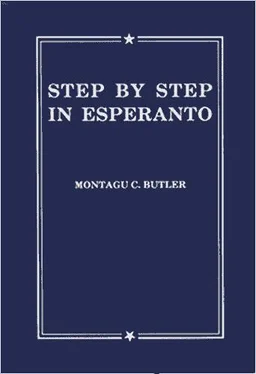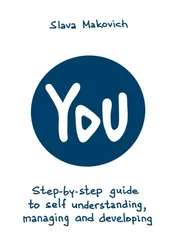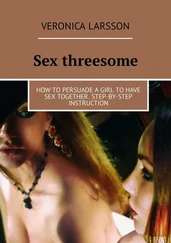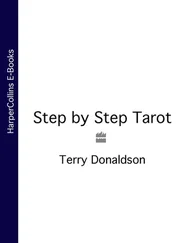Primary words, 522
Pro, 598
Pronouns, 28, 52. See “ci”,“ Correlatives”, “Oni”, “ Possessives”, “si”
Pronunciation, 1. See each letter
Proper names. See “ Names”
Propra, 484
Proverbs
Prunti, 534
Questions; 83, 91, 108
Quotations, 1055
Race-names. See “ Inhabitants”
Re-, 888
Reading Matter
Reciprocal forms, 552
Reflexive pronoun, 830
Relatives, 57
Reported speech, 1055
Retro-, 890*
Returne, 890
Right, 199, 201, 202, 779*
Roots; 10, 65, 123, 185– 197. Trans. and intrans., 624, 642
Same al vi, 44
SC, 102, 614
Sci, 102, 297*
Se, 102; Se jes, Se ne, 104
Sed, 80
Self , 848, 852
Seasons, 115
Sen, 150; Sen-, 206
Shall , 751, 809, 956
Should , 855, 866, 956, 1056– 1057
Si, 830; Sia, 832, 847b; Sin-, 852
Sidiĝi, 211
Since, 375, 802, 914, 1192c
Simple tense preferable, 1124
So , 90, 560
Sola, 203, 217
Some , 168, 412, 698. Omitted, 20
Spite, 934
Stariĝi, 211
Stif-, Sti-, 1029*, 1171
Sub, 93; Sub-, 390, 1187
Subject, 291
Such , 168– 169
Suffixes, 31. Elasticity, 985, 989c. List. Order in combination, 138
Summary of grammar
Super, 93
Superlatives, 366
Sur, 23, 93
Syllables, Counting of, 4, 748
Ŝ, 53
Ŝati, 323
Tamen, 180
Technical affixes, 890*, 1193– 1197
Telegrams, 745
Terminations. 1108. See each
That , 284
Then , 90, 375
There , 20, 27
Tia, 168– 170
Tial ke, 281, 598
Tie, 27, 110
Tiel … kiel, 564
Ties, 252, 426, 837b, 842a
Tio, 16, 121, 162; Tioj, 52b*
Tiu, 121, 162, 425
Time, 1042
Time of day, 730, 1037
Titles, 44, 1163
To , 131, 474, 1054
Too , 42, 149
Tra, 276, 395
Trans, 278, 395, 936
Transitive roots, 623
Tre, 149
Tro, 149
Tuj, 783, 779*
Tuta, 204, 419; La tuta, 204, 235, 277
Tute, 181; Tute ne, 182
Typewriters, 745
‑u, 70, 209– 210, 939, 944, 953, 956
UJ, 407
‑uj, 117, 993– 995
‑ul, 459
‑um, 1139
Unu, 39; 347e, Unuj, 412
Unu la alian, 552
‑unt, ‑ut, 1107
‑us, 855
Ve, 527; Ve-, 1154
Verb-endings, 1107– 1108. See “ ‑as”, “ ‑is”, “ ‑os”, “ ‑u”, “ ‑us”
Verbs. Impersonal, 973. Reciprocal, 395, 552. See “ Compound tenses”, “ Logical tense”. “ Omissions”, “ Participles”
Vere, 102
Vic-, 1168
Vir, hom, 146; Vir-, 34
Vocative case, 347f
Voli, 486, 493, 757; Volus, 863, 867
Vowels, 2
Vowel-glides. See “ aj”, “ aŭ”, “ ej”, “ eŭ”, “ oj”, “ uj”
‑ward(s) , 544
What a , 171
Will , 481, 486– 487, 751, 956
With. See kun, laŭ, per
Word-building; 63, 65, 1190. See also “a, as, o”
Word-order, 20, 83, 84, 88, 181– 182, 221– 223, 300, 496, 503, 793, 880
Would ( insistis ) 481, 855, ( kutimis ) 899c, 1056– 1057, 944c
X, Transcription of, 31*
Appendix.
A Storm in a Tea-Cup
Peter was born (the telephone was installed) in 1962. Estis ‑ata? ‑ita?
See §1096
For many years controversy has raged over this question. On both sides equally, eminent Esperantists have written thousands of pages, with no sign of reaching agreement. One side appeals to frequent Zamenhofan usage: the other to logic and the Fundamento, and to Zamenhof’s words: “En la lingvo internacia oni devas obei sole nur la logikon”.
I venture to suggest that both sides are right, but not exclusively. Often -ata and -ita are equally possible: the choice depends on circumstances, e.g., the context, the thought in the speaker’s mind, the meaning of the verb.
If naskiĝi means “enter the world”, and Peter’s birth took place from 3 to 4 p.m., then in the morning he was naskota, in the afternoon he was naskata, and in the evening he was naskita. Thus, in the same day he was nask-ota, ‑ata, and -ita.
I moved to a new house in December 1961. In January 1962 I ordered a telephone: it was then instalota. In February workmen dug a trench and brought in a wire: the telephone was instalata. Only in March was it ready for use. In April ĝi estis instalita jam unu monaton. Thus, in 1962 the telephone was instal-ota, ‑ata, and -ita.
If the enemy okupis (= eniris) the town in the morning, it was then okupata, and in the evening it was okupita. If the enemy okupis (= enloĝadis ) the town from 1914 to 1916, during those two years it was okupata (and also okupita ), Zamenhof translated “I am busy” by Mi estas okupita. Nevertheless, if my affairs are still weighing heavily upon me, Mi estas okupata well expresses my present situation.
To return to our opening sentences. Both forms Petro estis naskata (was being born), and Petro estis naskita (had been born) are possible and correct. But both are uncomfortably over-precise. The English ‘medial’ forms “was born” and “was installed” are comfortably less precise, and may carry either meaning according to context. The ‘medial’ forms Petro naskiĝis (oni installs la telefonon) — equally unprecise — are a perfect translation of the English, and are usually preferable to the compound tenses.
M.C.B.
Member, Royal Society of Teachers
In How to teach a Foreign Language , p. 129.
More is involved in learning a language than an understanding of its grammatical elements. No language (not even Esperanto) can be mastered in an hour. Words will not flow instinctively without constant repetition , and their correct use can be learned only from context. The aim of this book is not to satisfy the curiosity of the dabbler, but to guide the student to proficiency.
The full cost of printing this edition was met by a gift from a generous member of ELNA, who wishes to remain anonymous. On behalf of ELNA and Esperantists worldwide, our heartfelt thanks.
Читать дальше












